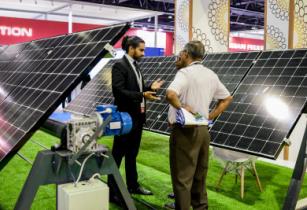The GCC is likely to speed up its solar energy conversion movement following the lessons learned from the depressed oil prices of the past few years, according to an industry leader
Turkish solar power structure supplier, Tekom-Puk, maintains the solar drive will ensure the Gulf region reaches its 2030 target of a collective 4.6 GW PV in power generation to emerge as a global renewables leader.
Murad Sayg?n, the company?s general manager, said that the GCC solar sector is now widely regarded as ?highly promising? and is likely to expand further.
?For the last several years, GCC countries have been fashioning a critical role for next decade, which would make it the market driver,? he added.
Tekom-Puk?s forecast is supported by the Mena Power Industry Outlook prepared by Ventures Onsite for Middle East Electricity. In the in-depth report, renewable energy is expected to play a vital role in the GCC?s economic diversification plans.
?It forms a lucrative option for electricity generation capacity in the GCC, which has reached US$2.1bn in 2018 and is expected to be worth US$25bn in 2022,? stated the report, citing increasing renewable deployment among the region?s policymakers, regulators and operators. The report added that the GCC?s cumulative deployment and investment in renewables could reach US$16bn in 2020.
With all GCC countries now prioritising renewables, the UAE leads the way for mega-projects such as the Mohammed Bin Rashid Al Maktoum Solar Park in Dubai, worth an estimated US$968mn, and the 1.2GW Sweihan plant in Abu Dhabi.
As part of its ?Energy Strategy 2050?, the UAE aims to generate 44 per cent of its electricity from renewables by the middle of the century.
?The UAE?s ministry of energy is considering tendering 1,000 MW of renewable-based mega-projects each year over the next few years to meet its energy targets. The expected increase in electricity consumption in the coming years, coupled with the integration of a large share of renewables, clean coal, nuclear and waste-to-energy in its energy mix is expected to project the UAE as a hotspot for power sector development in the Gulf region,? noted MENA Power Industry Outlook report.
Middle East Electricity 2019 will be held at the Dubai World Trade Centre (DWTC) from 5-7 March 2019.






